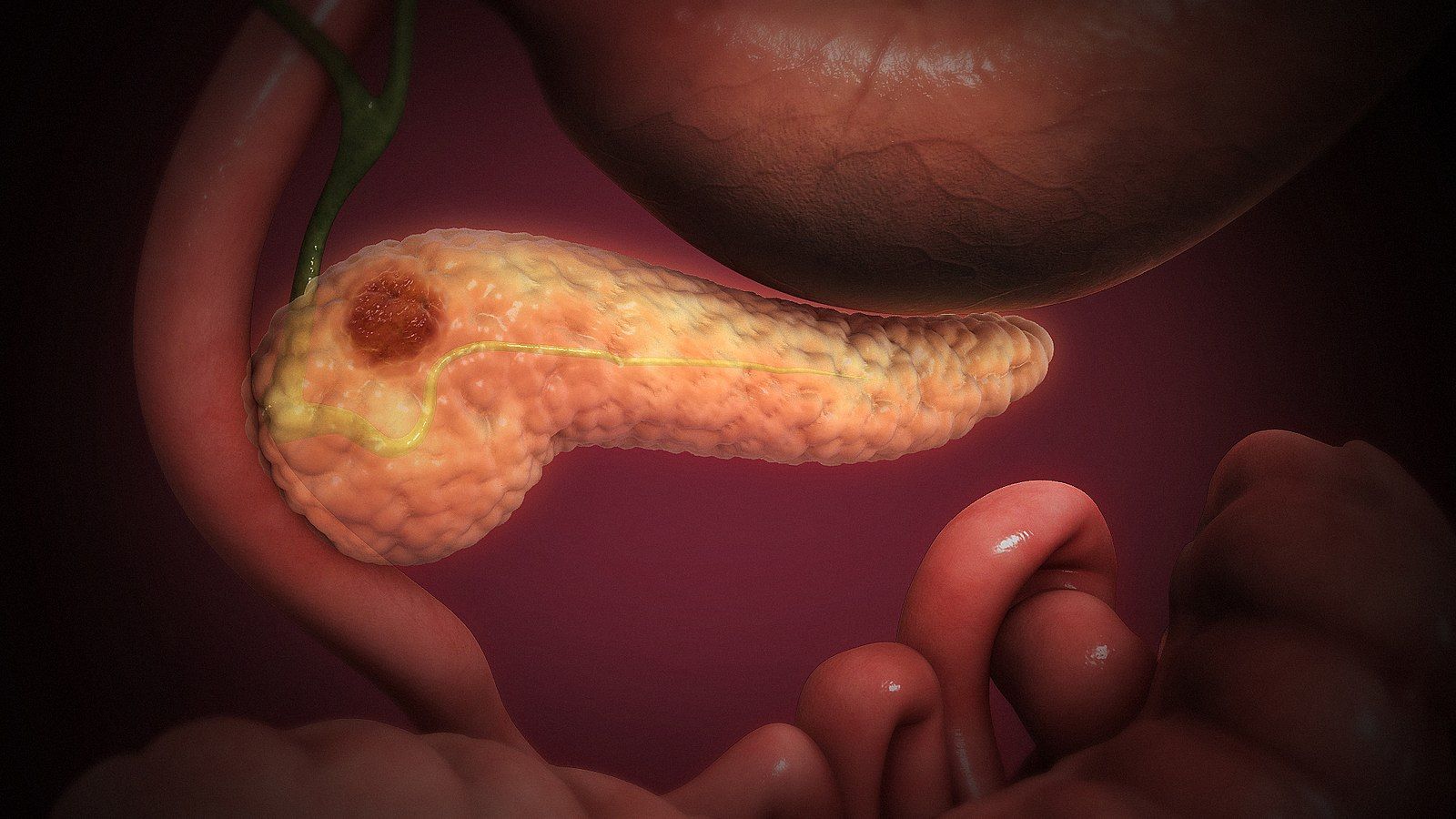Elraglusib Combo Demonstrates OS Benefit in Metastatic Pancreatic Cancer
The phase 2 Actuate 1801 part 3b trial results evaluating elraglusib with GnP in metastatic PDAC will be presented at the 2025 ASCO Annual Meeting.
Elraglusib/GnP elicited a clinically significant 1-year survival rate and demonstrated a favorable risk-benefit profile.

Elraglusib (9-ING-41), a GSK3β inhibitor, in combination with gemcitabine/nab-paclitaxel (GnP) demonstrated a statistically significant improvement in overall survival (OS) vs GnP alone as a first-line treatment for patients with metastatic pancreatic ductal adenocarcinoma (PDAC), according to a news release from the drug’s developer, Actuate Therapeutics, Inc.1
The top-line results from the phase 2 Actuate 1801 part 3b trial (NCT03678883), which is evaluating elraglusib plus GnP vs GnP alone in metastatic PDAC, will be presented on May 31, 2025, at the 2025 American Society of Clinical Oncology (ASCO) Annual Meeting. The results will be presented by Devalingam Mahalingam, MD, PhD, during the Gastrointestinal Cancer––Gastroesophageal, Pancreatic, and Hepatobiliary session under abstract 4006.
Additional findings showed that elraglusib/GnP met the trial’s primary end point for OS and elicited a significant 1-year survival rate. Furthermore, the combination regimen demonstrated a favorable risk-benefit profile.
“Pancreatic cancer is one of the most aggressive and difficult-to-treat malignancies, where patients urgently need new therapeutic options,” Daniel Schmitt, president and CEO of Actuate, said in the news release.1 “There have been no major advances in improving survival in first-line treatment of metastatic pancreatic cancer in over a decade. Demonstrating statistically significant increases in both median [OS] and percent of patients reaching 1-year survival and beyond, along with a favorable risk-benefit profile in this phase 2 trial, further demonstrates elraglusib’s potential to shift the treatment paradigm in [metastatic] PDAC.”
The phase 2 Actuate-1801 part 3b study randomly assigned 286 patients with metastatic PDAC not previously treated with systemic therapy 2:1 to receive GnP with elraglusib or GnP alone. Patients assigned to the elraglusib arm received a 9.3-mg/kg dose of intravenous elraglusib on day 1 of all 28-day cycles. Patients in both arms received 125 mg/m2 of intravenous nab-paclitaxel and 1000 mg/m2 of intravenous gemcitabine over 30 minutes on days 1, 8, and 15 of all 28-day cycles.2
The primary end point of part 3b of the study was median OS summarized through 1-year survival estimates. Secondary end points included disease control rate, objective response rate, progression-free survival, and adverse effects.
“We are incredibly excited to present the top-line data at ASCO. Based on the significant improvement in survival we have seen to date in the combination arm, we look forward to working with US and EU [European Union] regulators in the second half of [2025] to map out the path to advancing elraglusib to [new drug application] and registration and making the drug available to patients as expeditiously as possible,” Schmitt continued.1
Patients 18 years or older with pathologically confirmed advanced or metastatic PDAC were eligible for enrollment. Additional eligibility criteria included having at least 1 measurable lesion per RECIST v1.1 guidelines; adequate bone marrow, liver, and renal function; and an ECOG performance status of 0 to 2.
Patients were ineligible for enrollment in the trial if they were pregnant or lactating, had a known hypersensitivity to any components of elraglusib or to the excipients used in its formulation, or if they had not recovered from clinically significant toxicities relating to prior anticancer therapy, excluding alopecia and infertility. Additionally, patients were excluded from trial entrance if they had significant cardiovascular impairment, had a myocardial infarction within 12 weeks of treatment initiation or electrocardiogram abnormalities deemed medically relevant, or had symptomatic, rapidly progressive brain metastases or leptomeningeal disease.
References
- Actuate Therapeutics announces statistically significant topline results from global phase 2 trial of elraglusib in first-line treatment of metastatic pancreatic cancer. News release. Actuate Therapeutics Inc. May 6, 2025. Accessed May 8, 2025. https://tinyurl.com/muk4y9a2
- 9-ING-41 in patients with advanced cancers. ClinicalTrials.gov. Updated November 7, 2024. Accessed May 8, 2025. https://tinyurl.com/3dr3fkt4